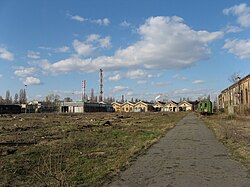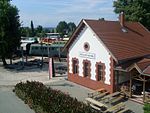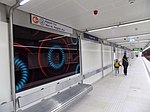Újpest Synagogue

The Újpest Synagogue is a Neolog Judaism synagogue in Újpest (New Pest), a district of Budapest, Hungary. The Romantic-style edifice was built in 1866 and holds 1,000 seats. Rabbi Sander Rosenberg from Arad officiated at the opening ceremony. Its establishment was a "great holiday" for the Jews and Christians of Újpest. It lies in 8 Gergely Berzeviczy Street about five minutes from Újpest-Városkapu metro station. The synagogue was founded by the Lowy family.The Orthodox Judaism community, which did not agree with Neolog Judaism, split off and created their own synagogue.During World War II, the synagogue was looted and partially destroyed by the Nazis. After the war the synagogue was rebuilt and a Holocaust memorial was added next to the synagogue. The memorial, which was unveiled by Hungarian President Zoltán Tildy, is a wall with names of the 17,000 Jewish Ujpest residents that were victims of the Holocaust.
Excerpt from the Wikipedia article Újpest Synagogue (License: CC BY-SA 3.0, Authors, Images).Újpest Synagogue
Berzeviczy Gergely utca, Budapest Újpest Városközpont
Geographical coordinates (GPS) Address Phone number Website External links Nearby Places Show on map
Geographical coordinates (GPS)
| Latitude | Longitude |
|---|---|
| N 47.56224 ° | E 19.08287 ° |
Address
Berzeviczy Gergely utca
1042 Budapest, Újpest Városközpont
Hungary
Open on Google Maps











